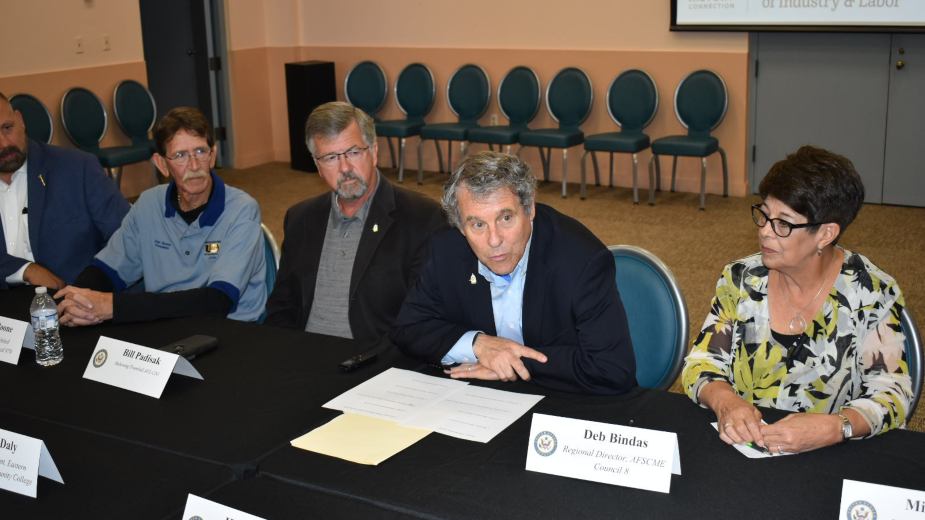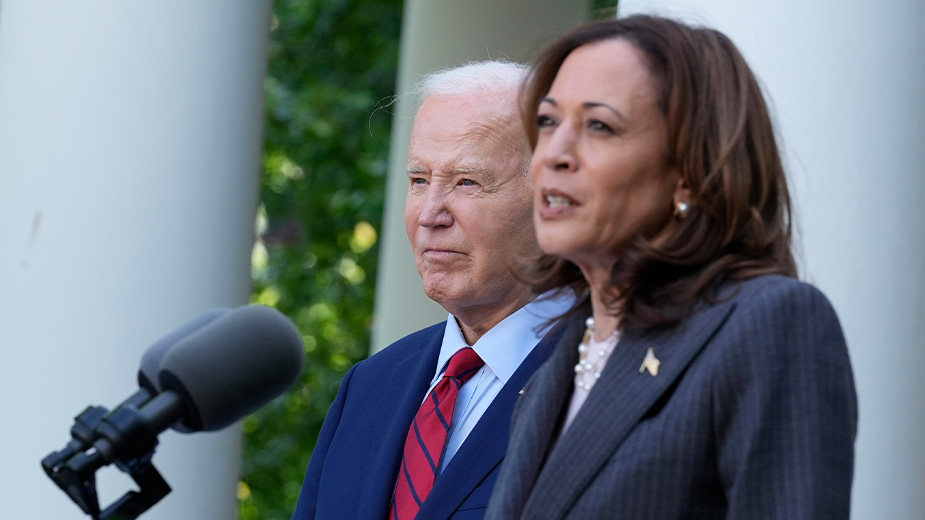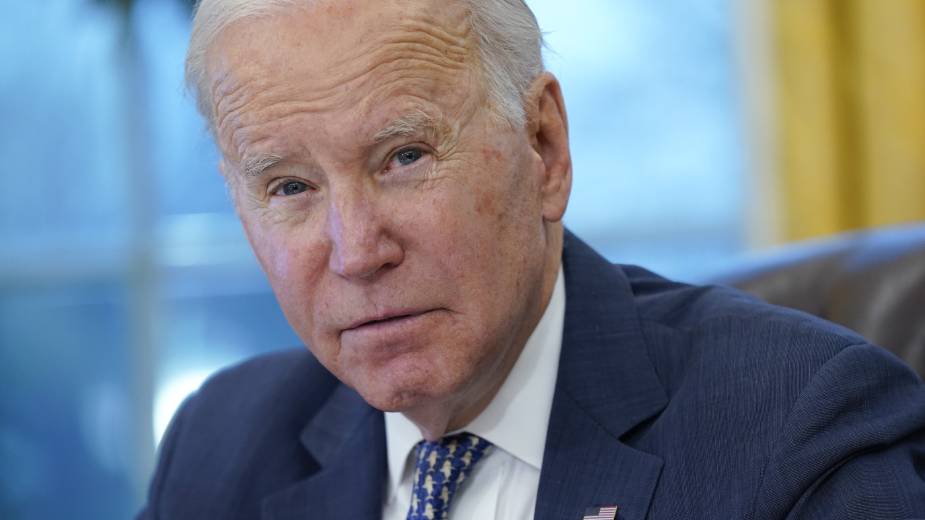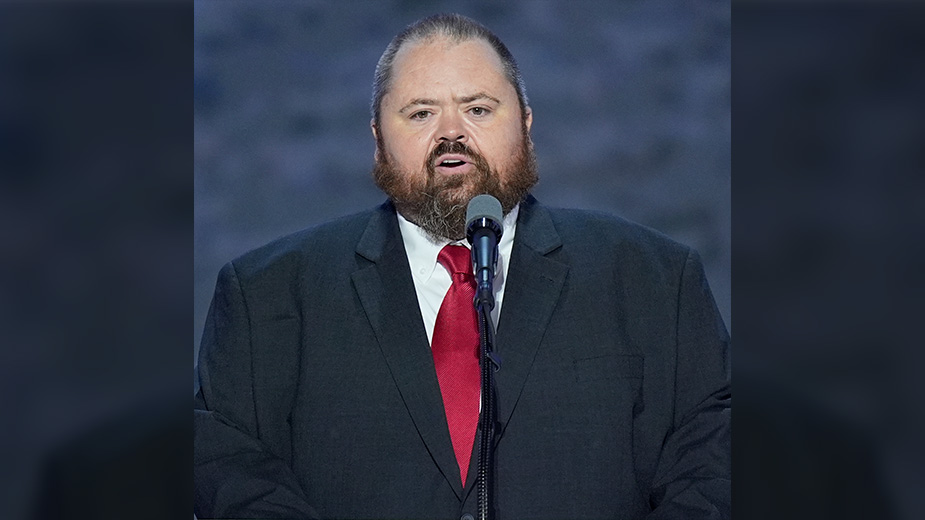Brown, Labor Leaders Lament Automation’s Toll
YOUNGSTOWN, Ohio — U.S. Sen. Sherrod Brown said Thursday he still is holding out hope that General Motors might select its idled Lordstown plant to produce one of the 20 electric vehicle models it plans to roll out over the next few years.
Brown, D-Ohio, was at the Youngstown Historical Center for Industry and Labor for a roundtable with representatives of area unions, trades and educational institutions. The topic was legislation Brown plans to introduce next week to mitigate the impact of automation on workers.
Meeting with reporters before the forum, Brown said he speaks “with some regularity” with GM CEO Mary Barra and is in contact with representatives of the United Auto Workers and Lordstown Motors who are in discussions to acquire the plant. Barra “continues to put off” discussing the plant, the fate of which is subject to negotiations underway between the UAW and U.S. automakers, including GM, he said.
“We don’t give up hope that these negotiations can bear some fruit,” Brown said. Adapting the Lordstown plant for manufacturing electric vehicles of similar size to the Chevrolet Cruze, which GM manufactured there until March, would require “minimal retooling,” he said.
During the roundtable, Brown asked whether local GM workers retained any hope that GM might place an electric vehicle at the plant.
“There is a slim hope,” responded Mike Aurilio, recording secretary for UAW Local 1112, which represented workers at the plant. Aurilio said GM appeared to go “out of its way to kill the Cruze.”
The vehicle wasn’t marketed in the West, nor was its J.D. Power quality ranking promoted.
“They never did any advertising,” he said. “They always forget what the taxpayers did,” Brown said, referring to the federal bailout of GM and Chrysler a decade ago, a decision he still maintains was the right one.
Brown hosted the roundtable to outline his proposed Workers’ Right to Training Act of 2019. The legislation would require companies provide 180 days advance notice to workers when new technology will change employment positions, as well as provide 270 days if jobs will be eliminated.
It would further require employers to pay for and provide on-the-job training to employees who will be affected by the introduction of new technology. Companies would have to provide training to employees whose jobs will change as a result of new technology, or to employees who will lose their jobs and to help them obtain a different position at a similar company. Employers also would have to provide six months severance to all workers who lose their jobs as a result of new technology.
“I talk to workers all the time who say their companies see them as simply a cost to be minimized. That’s the reason why wages have been so stagnant, and with more technology we’ve got to keep workers front and center on this,” Brown said.
“As technology improves, service workers’ jobs are being eliminated,” said Deb Bindas, regional director for Council 8 of the American Federation of State, County and Municipal Employees. Among her membership, these positions include medical transcribers, boiler maintenance workers and meter readers.
Postal workers have been similarly impacted by technology, said Henry Gomez, president of National Association of Letter Carriers Branch 385. An issue in current negotiations is the U.S. Postal Service’s desire to eliminate a provision that prevents them from laying off workers who have been on the job six years or longer.
Joe Tauro, representing Local 880 of the United Food and Commercial Workers, noted that when he started working at Giant Eagle there were 10 meat cutters in each store. Now there are two or three, a decline he attributes in part to automation, as well as lack of local population growth, competition coming into the area and changes in how people shop.
Tauro lamented the increased implementation of self-checkout stations in retailers and handheld devices that allow shoppers to check out items as they shop.
Don Boone, president of United Steelworkers Local 979, said his workforce has been more than halved but makes the same amount of steel.
Boone and other labor representatives voiced a familiar complaint during the roundtable: the lack of young people entering the skilled trades because their parents and other adults impressed on them the need to go to college. Boone is short about 40 people to fill industrial maintenance positions, he said.
Industrial maintenance is among the voids Eastern Gateway Community College has identified, said Vice President Art Daly. To meet that need, EGCC is introducing an industrial maintenance program in January.
“It’s better if we talk to them younger,” said Tony DiTommaso, secretary/treasurer of the Western Reserve Building Trades Council. He reported a career fair is planned for Sept. 26 to acquaint students with the opportunities and benefits available in the building trades.
Bill Padisak, president of Mahoning/Trumbull Central Labor Council, lamented the human toll job losses from automation are exacting. Padisak, who also is chairman of Meridian HealthCare’s board of directors, said the agency is seeing increased incidences of depression in addition to alcohol and drug use.
“There’s clearly frustration about companies that always are looking to replace people through automation,” Brown said following the roundtable, adding that one concern being overlooked by employers is who will be left to buy their products if they keep throwing people out of work.
“That’s the fundamental reason for this bill, to give people the opportunity to be retrained and to encourage companies to put more premium on their workers,” he said.
Pictured: Sen. Sherrod Brown discusses legislation he plans to introduce to mitigate the impact of automation on workers. Among those attending the round table from labor unions were (from left) Tony DiTomasso, Western Reserve Building Trades Council secretary/treasurer; Don Boone, United Steelworkers Local 979 president; Bill Padisak, Mahoning/Trumbull Central Labor Council president; and Deb Bindas, regional director for Council 8 of the American Federation of State, County and Municipal Employees.
Copyright 2024 The Business Journal, Youngstown, Ohio.



